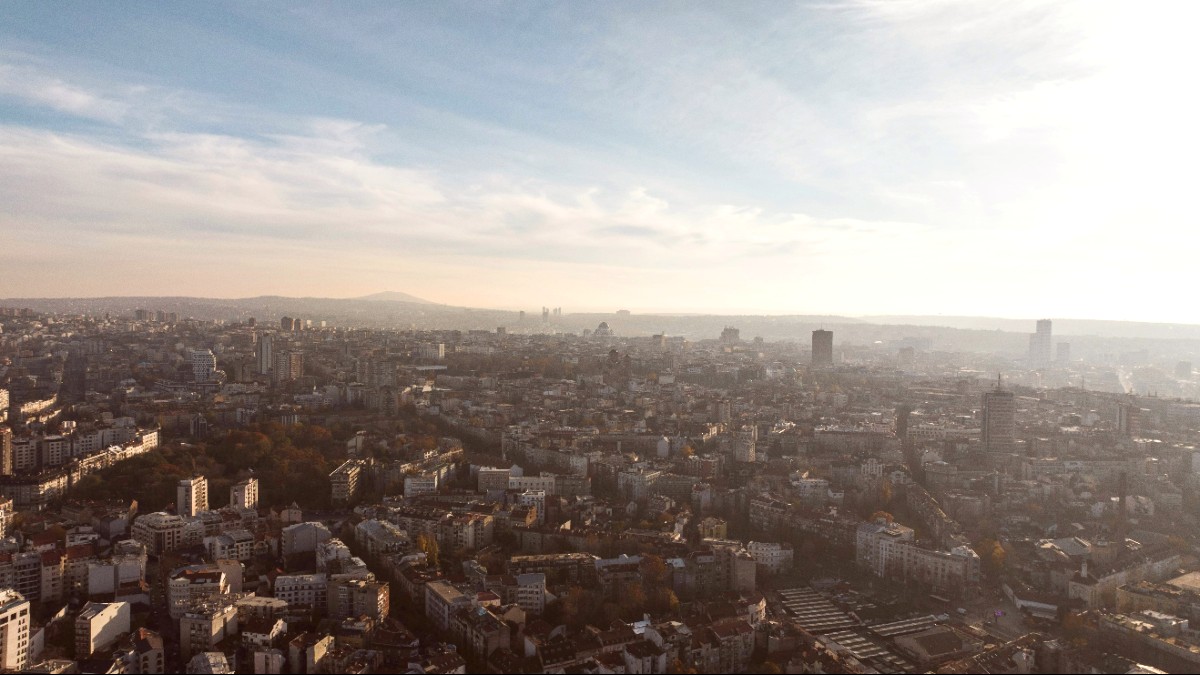
Central Balkans, Bulgaria
Bulgarian food draws heavily from its agricultural roots and historical connections. Ottoman rule introduced spices and dishes like baklava and moussaka.
Ruse, as a Danube port city, shows subtle influences from Central European and Russian cuisine due to historical trade ties.
Around 10% is customary for good service. Rounding up is common for smaller bills.
Waiters often do not bring the bill until specifically asked. Say "Smetkata, molya" (Сметката, моля).
It is common to order several dishes to share among the table.
Refreshing salad with chopped tomatoes, cucumbers, peppers, onions, and grated white brine cheese.
Found in every traditional restaurant.
Grilled minced meat items: seasoned rolls (kebapche) or flattened meatballs (kyufte).
Look for them in grill restaurants (skara) and diners.
Traditional pastry with thin layers of filo dough, eggs, and sirene cheese.
Available at bakeries (pekarna) and street vendors.
Banitsa, Kebapche/Kyufte, and Gyros/Doner are widely available from street vendors.
Rakia (strong fruit brandy), Bulgarian wines, local beers (Zagorka, Kamenitza), Ayran (salty yogurt drink), and Boza (fermented malt drink).
A few upscale restaurants in Ruse serve modern Bulgarian cuisine or international dishes with an elegant ambiance.
Abundant in the city center. Offer traditional Bulgarian food and popular international options.
Numerous bakeries, grill stands, fast-food joints, and small local diners (закусвалня).
Bulgarian cuisine has many vegetable-based dishes (salads, stews). Specify "bez meso" (без месо - without meat).
Vegan options require careful inquiry due to dairy use.
Awareness is growing but not universal. Be prepared to explain needs using "bez gluten" (без глутен - gluten-free).
Larger restaurants may be more accommodating.
Not widely advertised for tourists, inquire locally.
Opportunities exist in surrounding rural areas for vineyards or dairy farms.
Local culinary events during summer or autumn harvest season. Check cultural calendars.
Riverside restaurants along the Danube; traditional "mehana" (tavern) style restaurants.
Lamb is traditionally prepared for Easter celebrations.
Specific pastries and dishes are prepared for various religious and national holidays.
Pumpkin dishes and roasted chestnuts become popular.
Local harvest festivals may showcase regional specialties.
Limited availability. Best to inquire directly with restaurants or specialized shops.
Online forums and dedicated apps (e.g., HappyCow for vegan/vegetarian restaurants) can help identify suitable dining spots.
Opportunities exist in the surrounding rural areas to visit vineyards or dairy farms.
Local culinary events may occur, especially during summer or autumn harvest season.
Riverside restaurants along the Danube offer an unique ambiance with pleasant views.
Attend an opera, ballet, classical music, or theatrical performance.
Check schedules for memorable cultural experiences.
Occasionally held during festivals or at traditional restaurants (mehana).
Opportunity to see Bulgarian folk music and dance.
Find and book tours and experiences in Ruse and beyond on GetYourGuide.
Consider bringing a Bulgarian phrasebook to help with communication.
Find great stays on Booking.com or Agoda.
Bulgarian cuisine is often shared. Order a variety of dishes to get the full experience!